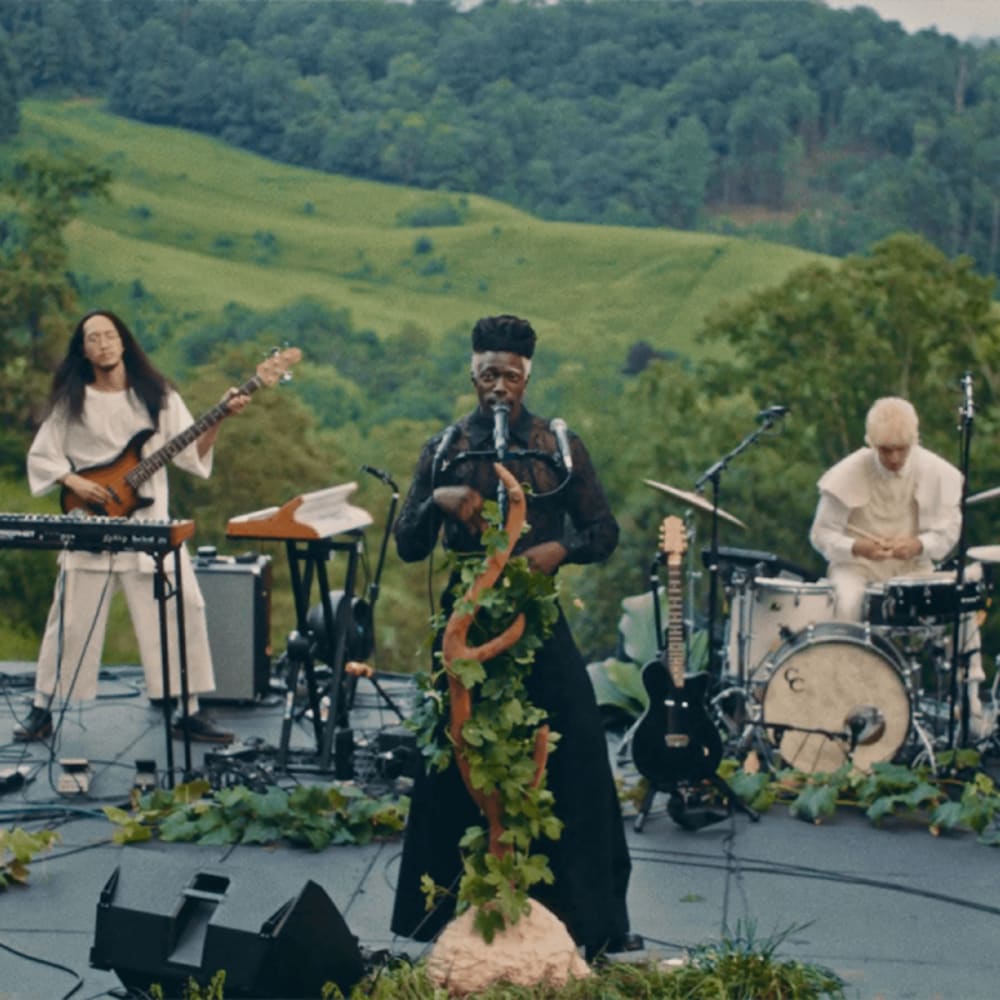Nicola Vassell is pleased to present Untitled Transmutations, a solo presentation of new paintings by the artist Deborah Anzinger, at Frieze London. This series is comprised of works on paper rendered with ground cookshop charcoal—an essential but undervalued fuel indigenous to the artist’s native Jamaica—which she reconfigures from a natural resource for local survival into an aesthetic material for international consumption. Through this metamorphosis, Anzinger asks whether artwork can be catalyzed to serve the community rather than the consumer by shifting language from the capitalist to the ontological and the imperialist to the ecological, exposing the fragile paradoxes from which material culture is conceived and valued.
Sculpting the charcoal gradient manually with wet and dry techniques, Anzinger’s compositions are an act of distillation, blending elements of the natural, synthetic, feminine, and erotic by signifying rather than symbolizing subjects and systems. Relying on phenotype rather than figuration, the audience’s search for recognizable forms only elucidates further questions about whether observation of the femme body—even if obscured—is an act of sexual, maternal, or racial consumption. Through her praxis, Anzinger strives to develop alternative images and spaces in which the body is situated outside of paradigms instituted by imperialism and is, instead, fecund with inherent value as an agent of change.
Untitled Transmutations was created in dialogue with her sculpture Training Station, in situ at the Cockpit Country Protected Area in Maroon Town, Jamaica—a community space forged from found natural materials where generational skills can be exchanged without exploitation and ancestral land can be reforested and conserved, both works centering environmental preservation as a unifying concern for communities in the global south. For Anzinger, art is an essential and functional element of society when appreciated for communal rather than hierarchical means, a life-giving force which concerns the Anthropocene: the reciprocal nature of humans, culture, and land— fostering an evolving topography of sustainable practice.
"Deborah Anzinger’s bold paintings and sculpture are saturated with metaphor and questioning. Deborah is an autodidact who began her career studying protocarnivorous plants and ultimately completed a Phd focused on HIV neuropathogenisis. She is an artist who operates in a global south style, assuming roles as community organizer and organization builder. She is the founder of New Local Space, Kingston, Jamaica. She makes practical and theoretical connections with the work of Erna Brodber, Gaama Gloria “Mama G” Simms, and Sylvia Wynter, helping make a Caribbean theoretical history and epistemology more visible. I cannot think of a more important artist right now."
— Simone Leigh
About Deborah Anzinger
Deborah Anzinger (b. 1979, Kingston, Jamaica) is an artist and founder of art organisation New Local Space (NLS), Kingston, Jamaica. Anzinger works in painting, sculpture, video and sound to interrogate and reconfigure raced and gendered aesthetic syntax that relate us to space and each other. Her work navigates subjecthood as a social and ecological contested space. Anzinger’s work was the subject of a solo exhibition at the Institute of Contemporary Art (University of Pennsylvania, Philadelphia, PA) and has been included in institutional exhibitions such as Pérez Art Museum Miami (Miami, FL); Museum of Contemporary African Diasporan Art (Brooklyn, NY); National Art Gallery of the Bahamas (Nassau, Bahamas); National Gallery of Jamaica (Kingston, Jamaica) and the Kent State University Museum (Kent, Ohio). Her work has been published in Small Axe Journal (Duke University Press), Caribbean Quarterly (Taylor & Francis), Seen (BlackStar Projects), Bomb Magazine, Art Papers, and a recent monograph published by the Institute of Contemporary Art, University of Pennsylvania, Deborah Anzinger: An Unlikely Birth. Anzinger was recipient of a Pollock-Krasner Foundation Grant (2018), an Open Society Foundations Soros Arts Fellowship (2020), as well as fellowships to Skowhegan School of Painting and Sculpture (2016), MacDowell (2022), and Denniston Hill (2023).
